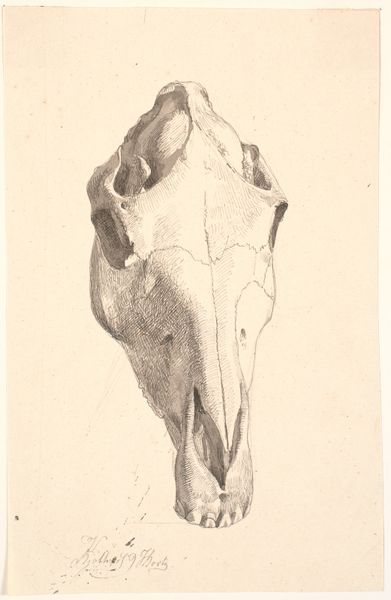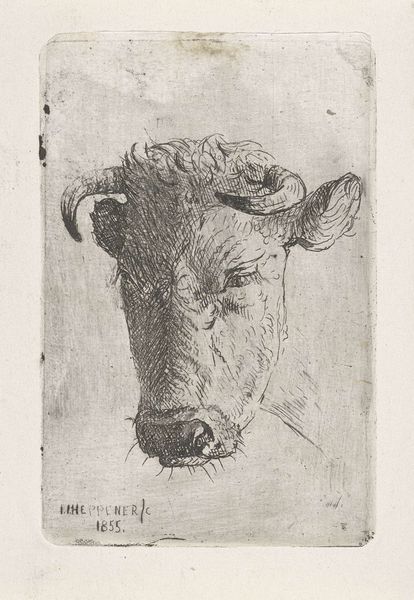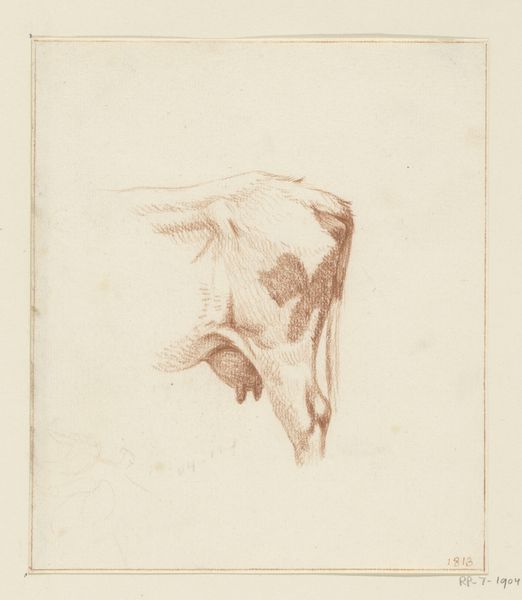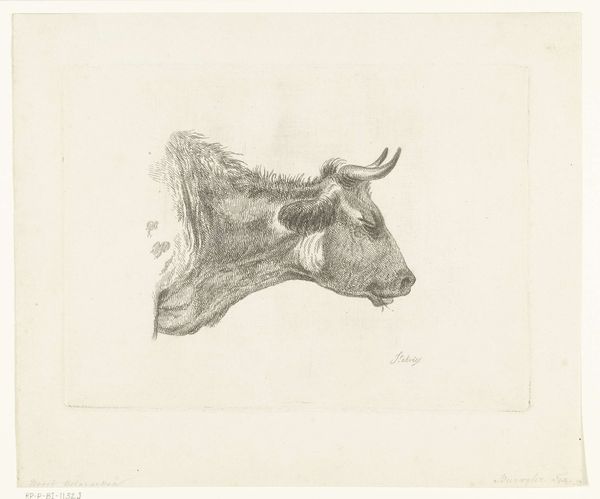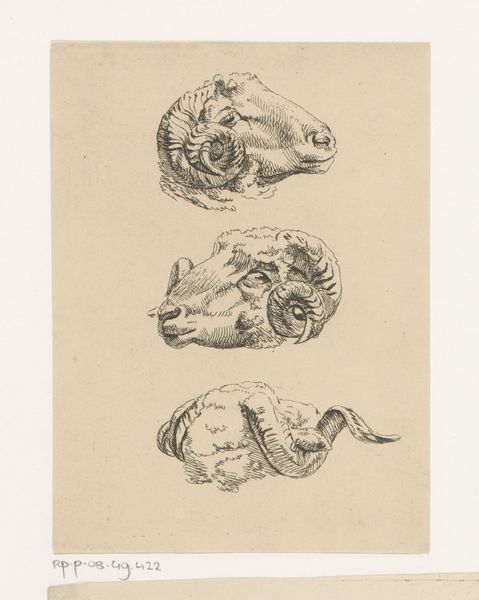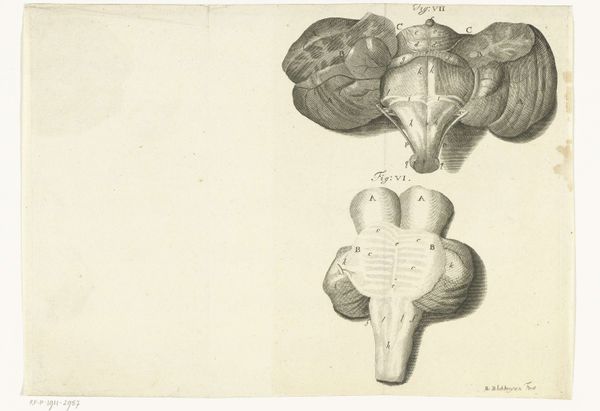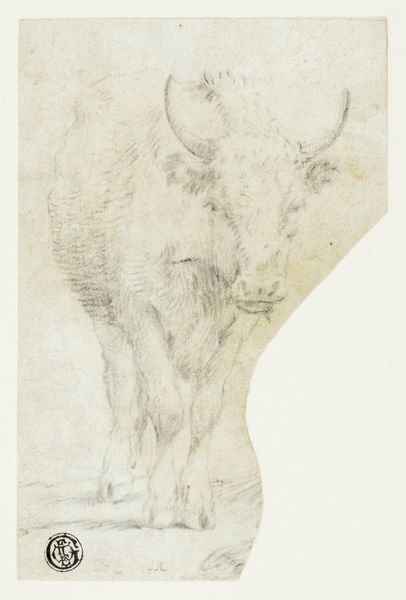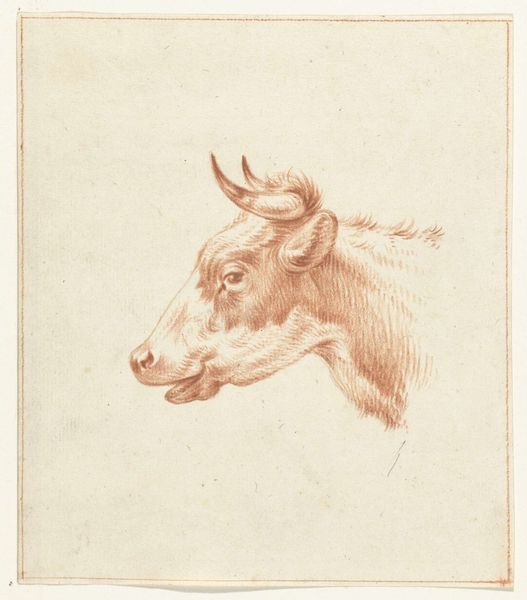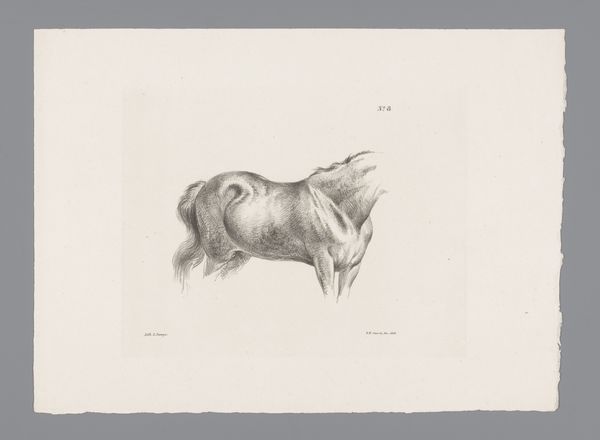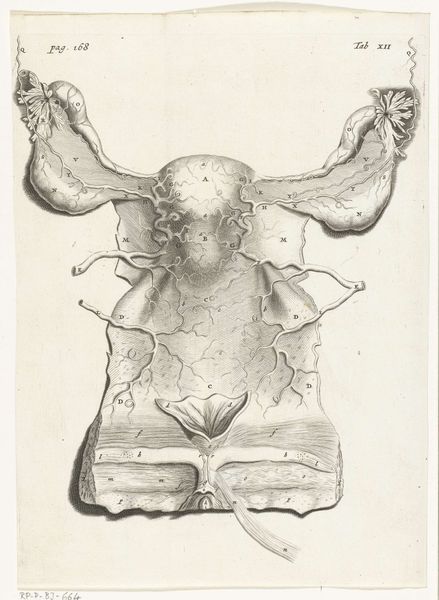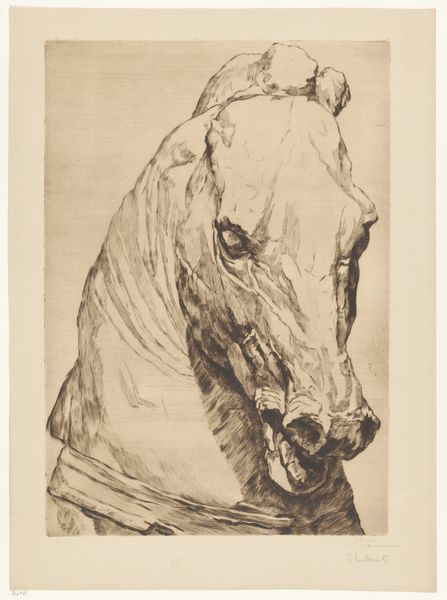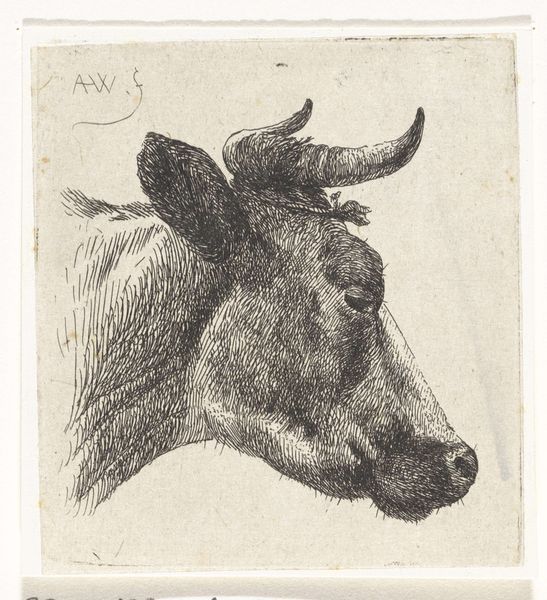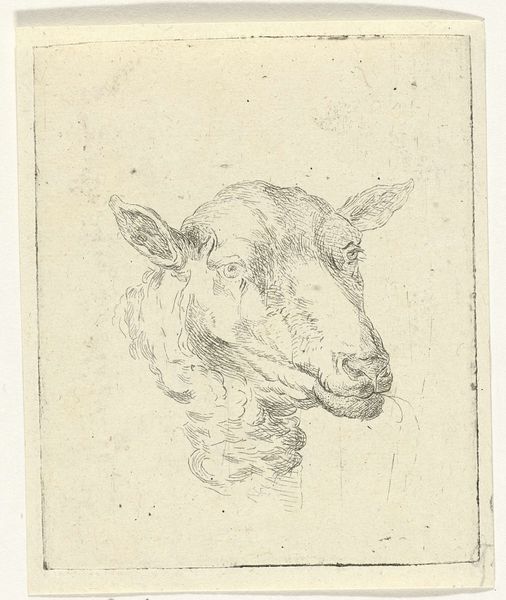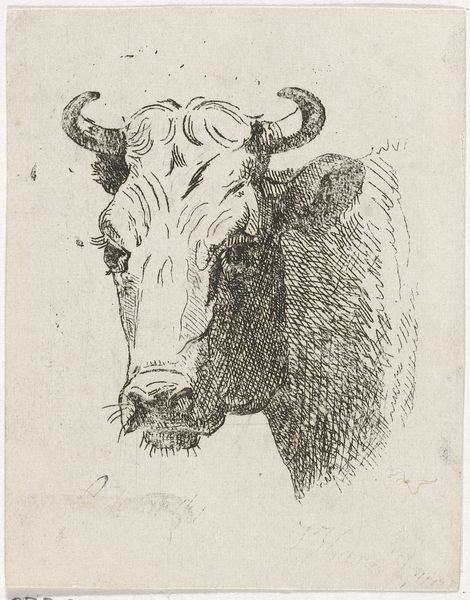
drawing, dry-media, pencil
#
pencil drawn
#
drawing
#
pencil sketch
#
form
#
dry-media
#
momento-mori
#
pencil drawing
#
romanticism
#
pencil
#
line
#
realism
Dimensions: height 231 mm, width 203 mm
Copyright: Rijks Museum: Open Domain
Jean Bernard made this drawing of a cow's skull in the early 19th century, using pencil on paper. It invites us to consider the cultural meanings we attach to both animals and the representation of death. The Netherlands in the 1800s was still largely an agricultural society. Cows were central to the economy and the sustenance of families. But this isn't a sentimental portrait of a living animal. Instead, Bernard gives us a stark, scientific rendering of death. How does this image create meaning through visual codes? The scientific revolution and Enlightenment thinking had changed the way artists approached the natural world. Before this period, artists may have focused more on symbolic or religious meanings. But by the 1800s, there was growing interest in objective observation. Historians might look at drawings like this alongside agricultural records, scientific treatises, and even literature of the time. These sources help us understand the changing relationship between humans, animals, and the land itself. By understanding the social context, we can appreciate the complex meanings embedded in this seemingly simple drawing.
Comments
No comments
Be the first to comment and join the conversation on the ultimate creative platform.
